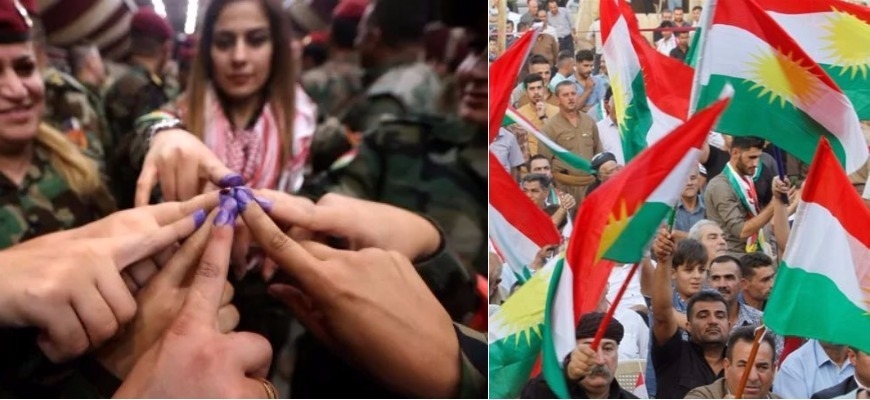92% #Kurds of #Iraq voted to seek independence in landmark referendum for #Kurdistanindependence
Erbil, September 28: Kurds has been a major debate in the Middle East, especially in Iran and Iraq who had the aspiration of independence for many years and finally they are on a right path to get it. More than 92 percent Kurds in Iraq voted "yes" in the landmark referendum on Monday. Notably, Iraq's 8.4 million Kurds voted in a referendum on creating an independent state.

As soon as the results were declared, the president of the semiautonomous Kurdish region, Masoud Barzani, claimed victory, but the vote has no legal mechanism for implementation and does not automatically trigger secession. 92 percent Kurds in Iraq voted "yes" in a referendum but however, it has no legal mechanism.
The Kurdistan Region’s referendum was held to ask people from the Kurdistan Region disputed areas, claimed by both Erbil and Baghdad, whether they want the Kurdistan Region and the Kurdistani areas outside the administration of the Region to become an independent state.
After this referendum in Iraq, Kurds in Iran, Turkey, Syria celebrated massively though the media coverage was minimal. The independence vote in Iraq also raised alarms in Iran, Syria and Turkey, where authorities are all grappling with local Kurdish separatist movements.
On the other side, in a response to referendum, Iraqi Prime Minister Haider al-Abadi threatened to isolate the Kurdish region from the outside world. Abadi tweeted, "We will not compromise on Iraq’s unity or sovereignty. Iraq is strong. Some wanted to weaken it. They have miscalculated." “We have taken measures to impose federal authority according to the Iraqi constitution,” he posted the second tweet.
Iraqi Prime Minister Haider al-Abadi also demanded that the Kurdistan Regional Government surrender control of its border crossings and two airports or face a ban on international flights. The Iraqi PM further demanded that the Kurdish authorities also hand over its oil revenues, the Kurdish region’s economic lifeblood.
Prior to the referendum, Iran closed its border with the Kurdish region of Iraq at the request of Baghdad. Meanwhile, Turkish President Recep Tayyip Erdogan s warned that Iraqi Kurds will “not be able to find food” if Ankara decides to halt the flow of trucks and oil into the region, adding that all military and economic sanctions are on the table.
U.S. policymakers have opposed Kurdish independence on the grounds that the breakup of Iraq would spill more Iraqi bloodshed, undermine Turkey’s security, and provoke conflict with Iran. UN also opposed the referendum and has called on Kurdish President Masoud Barzani to instead enter negotiations with Baghdad to reaching a deal.
Interestingly, Iraq’s Kurdish population have been asking for independence for years despite residing in an autonomous region within the country. But Iraqi Kurdish independence has been historically opposed to Iraq and also its neighbors, Iran, Turkey and Syria, as they fear the contagion for their own Kurdish populations.
Kurds were left stateless when the Ottoman Empire collapsed a century ago, from then Kurds have remained a minority population in the Middle East. Iran, which also has a significant Kurdish population, is also opposed to the creation of an independent Kurdistan.